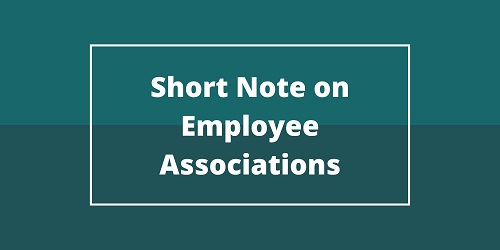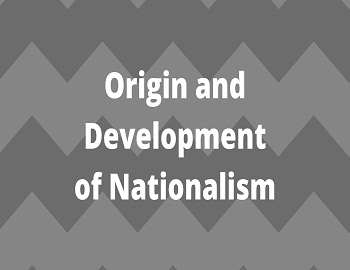Table of Contents
Management Introduction:
Management is the most significant agency for executing the policies of the administration. It has acquired great significance in contemporary times. With the accelerating pace and growing complexity of scientific and technological developments, and the emergence of the age of high competition, securing good results has become increasingly difficult as well as more urgent. Management must, therefore, keep an ever-open mind, and it needs the power of quick mental cross-references and adjustments. The importance of management in modern society has grown so much that we are said to be living in a managerial society. Lepawasky has well observed, “It is no exaggeration to say that the management of the nation’s large institutions, both in business and in government, determines the fate of millions of lives as well as the lives of generations unborn.”
Management is a universal process found in almost all spheres of life i.e., home management, school management, college management, business management, management of public enterprises, financial management, personal management, etc. The government of a modern welfare state undertakes several activities for achieving the greatest good for the largest number, preferably of all the people. For this, its managerial field has been constantly on the increase. The success or failure of the administration depends largely on the fact as to how well the management is in a position to manage programs of public welfare. As Dr. Appleby observes, “The heart of administration is the management of programs designed to serve the general welfare.”
Describing the importance of management for administration, Urwick says, “It is essential for the countries which are embarking on economic development that they should make a greater use of the ideas of scientific management in their machinery of government, particularly where they have transferred a segment of their economic life to public control.”
Meaning and Definition of Management:
The term Management, though it carries a definite meaning, is defined differently by different scholars and students. The term “Management” is sometimes confused with “Administration” as well as with “Organization”.
The fact, however, is that Management is different from Administration. It is an internal concept characterizing an activity discharged within the framework of an organizational unit. The terms “Organization” and “Management” should also not be confused. As a matter of fact, Organization is the structure whereas Management is the process. Clarifying the distinction between the two terms Seckler-Hudson says, “In this volume, an organization will be regarded as a division and unification of efforts towards some goal or policy. Management will be regarded as the collective utilization of human resources and materials in an effort to reach the known goal.”
Millett also remarks, “Administrative Organization is the formalized structure for exercising certain powers of government, and management is the group of persons and the process by which the organization is animated to accomplish these ends.”
Terry offers a simple but convincing definition of Management. He says, “Management is the accomplishing of pre-determined objectives through the efforts of other people.”
In simple words, we can say that Management is a process of achieving the desired goals or it is the art of arranging or managing things. Those who perform these important functions are known as managers.
Management Nature/Features:
Management constitutes the process of directing and facilitating the work of people organized in a formal group to achieve the desired goal. At the top, management is run by an elite called managers or directors.
The following are the main features of Management that reflect its true nature-
(1) Management is a Universal Process- It is a universal process found in almost all spheres of life i.e., home management, school management, business management, management of public enterprises, financial management, personnel management, etc. Management is a process. It requires skill. Management is a type of skill that can be changed from one field of administration to another. It is on this behalf that there is a growing trend towards the transfer of personnel from the public to the private field and vice-versa.
(2) Management is a Collective Activity- Management is not the task of one person. It is the collective effort of so many people. According to Fayol, “Management is neither an exclusive privilege nor a particular responsibility of the head or senior members of business. It is an activity spread, like all other activities, between the head and the members of the body corporate.” Millet also has the same idea. According to him, “Formal authority and responsibility may be vested in a single person, but the effective performance of the work of management requires a number of competent, specialized assistants. In these situations, management is not just a single individual with the title of a superintendent, or chief engineer, or director, or secretary; management is the whole group of persons.”
(3) Management is a Profession- Management has been described as a profession. It is a specialized branch of knowledge. Modern organizations are multi-purpose and the heads of these organizations have to rely on the advice and assistance of qualified technical personnel managers.
(4) Responsible and Accountable- Public management is responsible and accountable. According to Millett, “In essence responsibility means that management is held accountable for the results arising from its exercise of authority. Management must have authority in order to achieve its purpose in giving direction to group efforts. But this authority is accompanied by a responsibility for the result of its exercise.” Such a responsibility can be political responsibility, institutional responsibility, and professional responsibility.
These are the main features of management. On the basis of these, we can say that management is a process of collective utilization of human resources and materials in an effort to reach known goals. It is the process by which a group of professionally skilled and experienced persons who work at the top levels, work to animate the organization for accomplishing the set goals of the organization.
Management Functions:
Management performs several functions which can be summed up in the term used by Luther Gullick– ‘POSDCORB’ i.e., planning, organizing, staffing, directing, coordinating, reporting, and budgeting. While discussing the functions of management, Prof. John D. Millett divides these into two parts. In the first part, he places those functions which are the peculiar problems of the organization and which the management has to direct. These functions are termed as “substantive tasks of management.” For example, the substantive task of the finance department is to prepare the budget and present it before the parliament. In the second part, Millett includes those functions which are technical in nature and which are common to all administration, e.g., planning, coordinating, staffing, and directing. Millett further classifies these functions into three sub-parts:
- Work direction, which includes the problem of leadership, planning, supervision, and public relations.
- Work operation, in which Millett puts organization, human relations, budget, fiscal control, essentials of personnel policy, etc.
- Internal service, which includes problems of capital, plant supply, and disposals.
According to Terry, the four fundamental functions of management are planning, organizing, actuating, and controlling. To Fayol, the management process involves planning, organizing, coordinating, and controlling. Seckler-Hudson takes a more comprehensive view and includes in this process policy formation, locating and utilizing authority, planning, organizing, budgeting, staffing, operating, reporting, leading, directing, and controlling.
To sum up, we can say that the tasks or functions of management involve the planning, running, actualizing, supervising, coordinating, and controlling of the administration of an organization.
It is the function of management to coordinate and integrate the efforts of the personnel and the resources of the organization to carry out effectively and efficiently the attainment of set and defined goals. The success of the management is measured by the results secured, both in qualitative and quantitative terms, as well as by the degree to which the process of result attainment was characterized by efficient, willing coordinated, and organized efforts put in by the personnel. Management is considered good, healthy, and efficient only if it can make possible the rendering of satisfactory, timely, adequate, continued, progressive and responsible service to the people. It has to work efficiently as well as economically. It has to enlist and involve the willing support of the employees of the organization in the process of attainment of the results. Modern management is expected to work as participative management and not as an overhead and elite management. Without dedicated, skilled, and efficient management, no organization can hope to secure good and really productive results. Management always works for two objectives: efficiency and economy. These are the hallmarks of management. Only an organization being run by effective management can hope to rope in efficiency and economy in administration.









Comments (No)